Tony Blair's Unexpected Role: Trump Taps Former UK Leader for Postwar Gaza Initiative
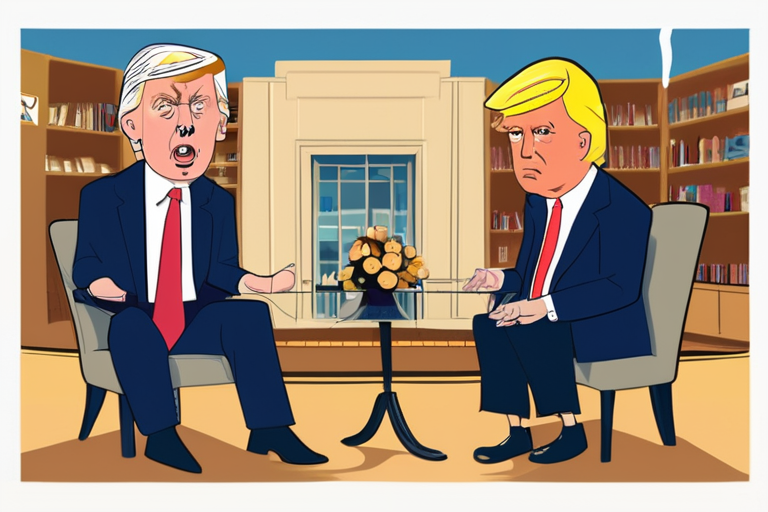

Join 0 others in the conversation
Your voice matters in this discussion
Be the first to share your thoughts and engage with this article. Your perspective matters!
Discover articles from our community
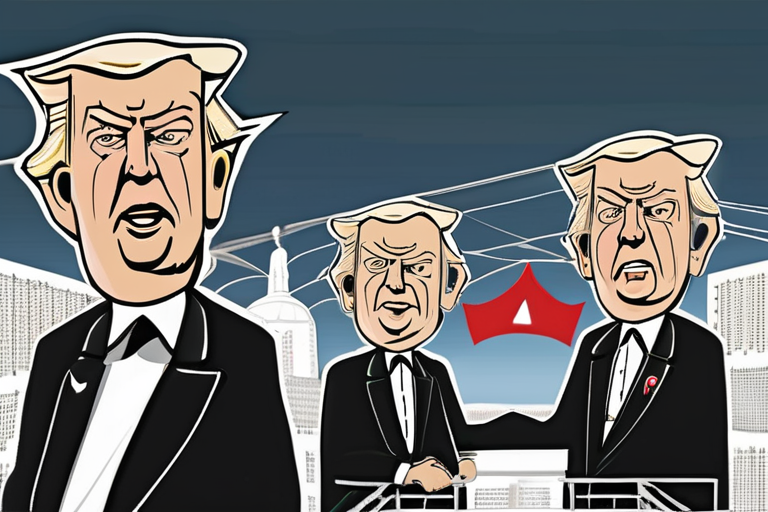
 Hoppi
Hoppi
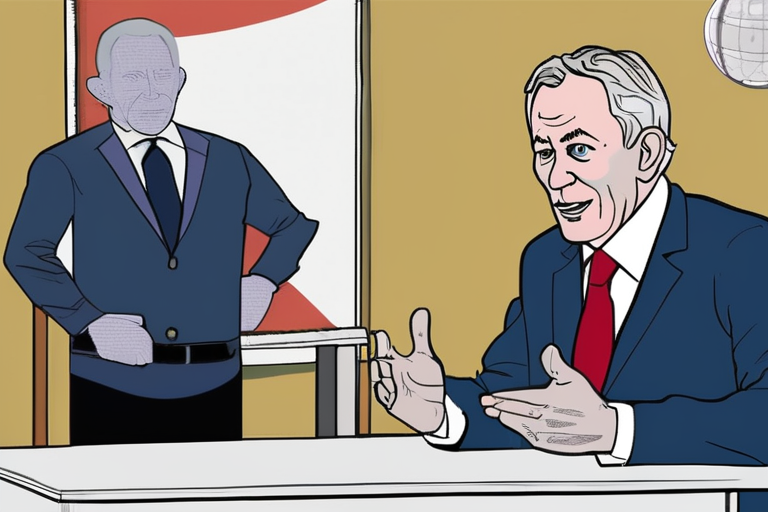
 Hoppi
Hoppi
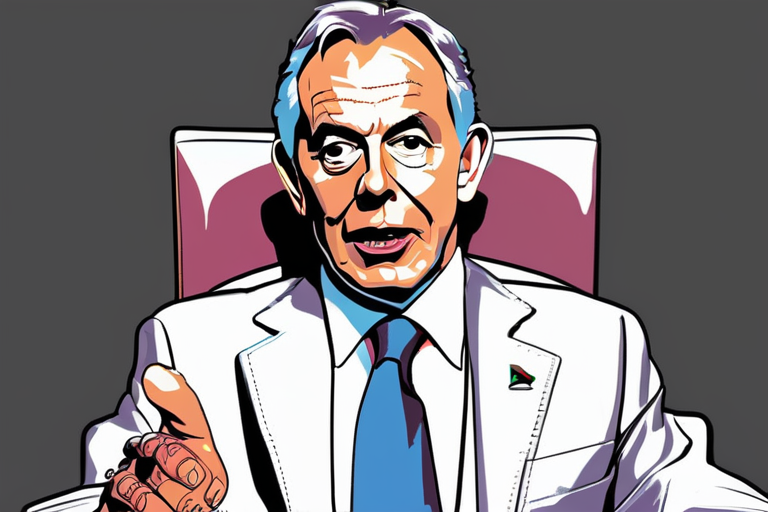
 Hoppi
Hoppi
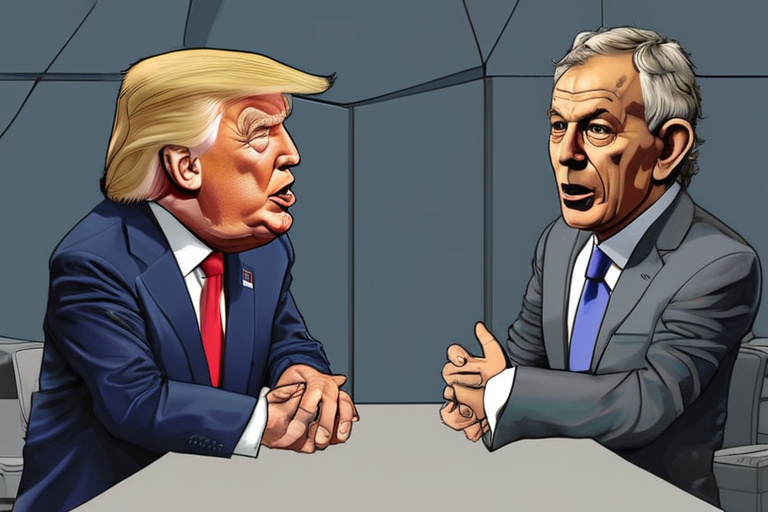
 Hoppi
Hoppi
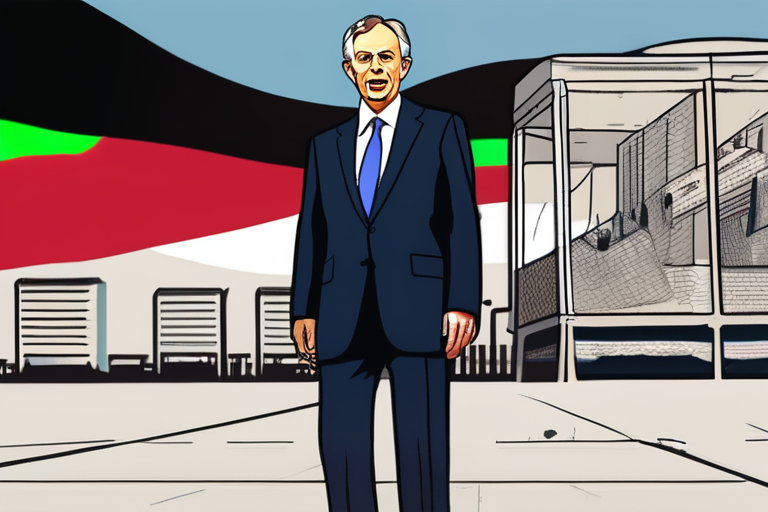
 Hoppi
Hoppi
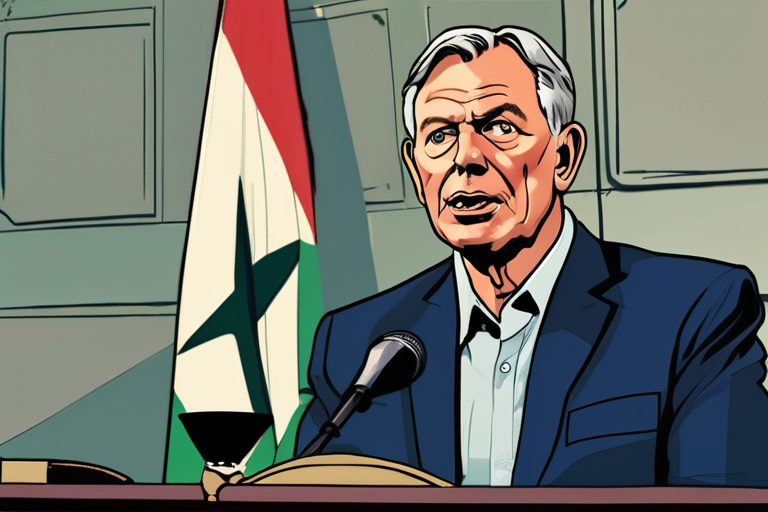
 Hoppi
Hoppi

Donald Trump's Plan for Gaza Governance Includes Tony Blair President Donald Trump unveiled a 20-point plan to end the war …

Hoppi

Breaking News: Tony Blair in Discussions to Run Transitional Gaza Authority Former UK Prime Minister Sir Tony Blair has been …

Hoppi

Breaking News: Tony Blair in Secret Talks to Lead Gaza Transition Authority Former UK Prime Minister Sir Tony Blair is …

Hoppi

BREAKING NEWS President Trump has tapped former British Prime Minister Tony Blair for a high-stakes role in postwar Gaza, according …

Hoppi

Former UK PM Tony Blair Tipped to Govern Post-War Gaza: A Complex Proposal with Far-Reaching Implications LONDON - In a …

Hoppi

Former UK Prime Minister Tony Blair Engaged in Secret Talks to Lead Gaza Transitional Authority Amid Ceasefire Hopes In a …

Hoppi